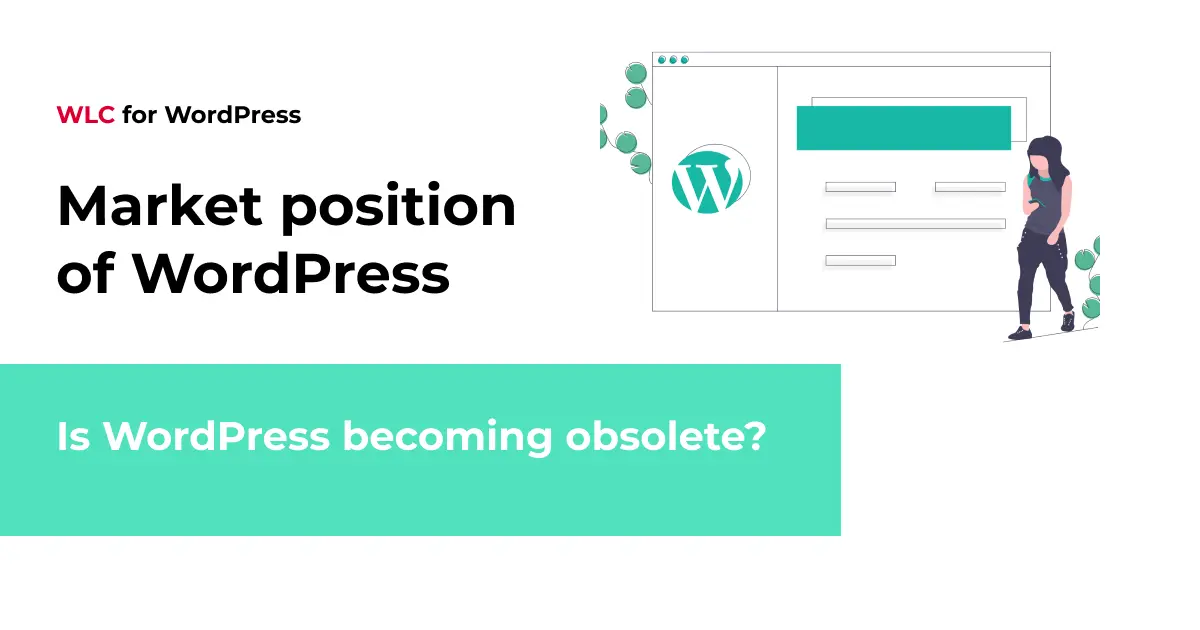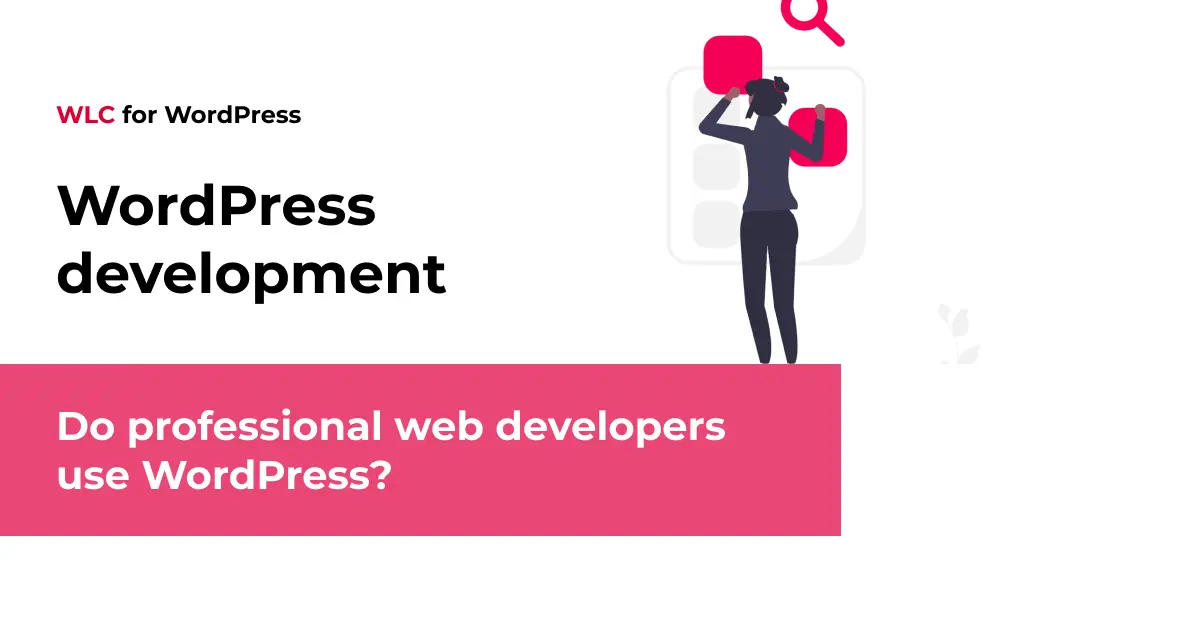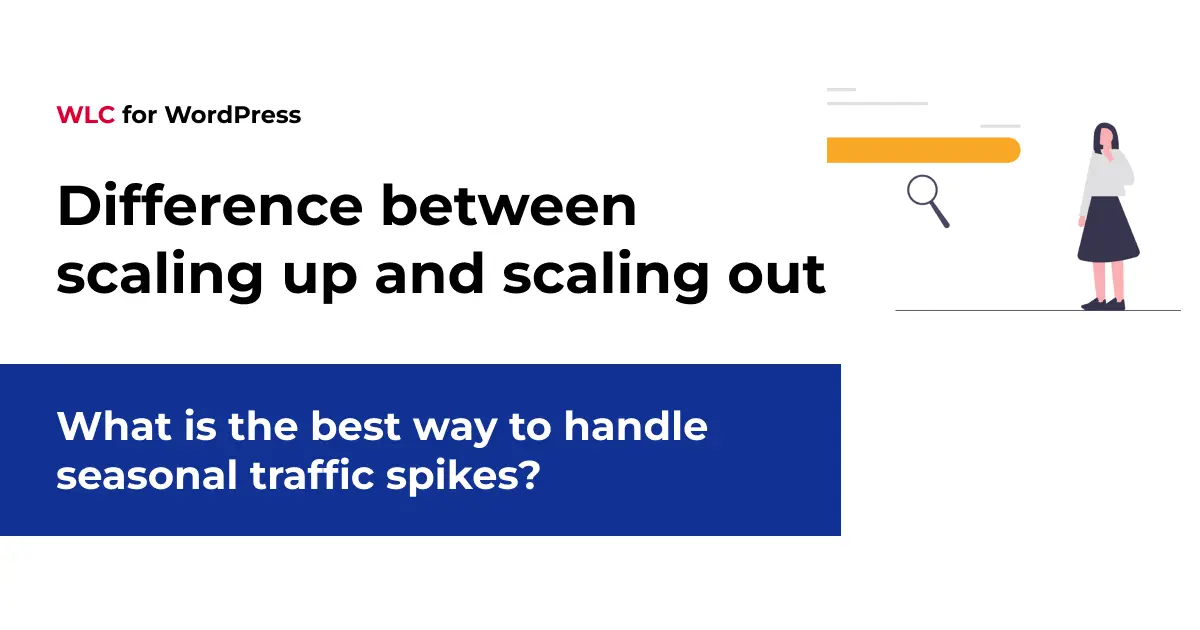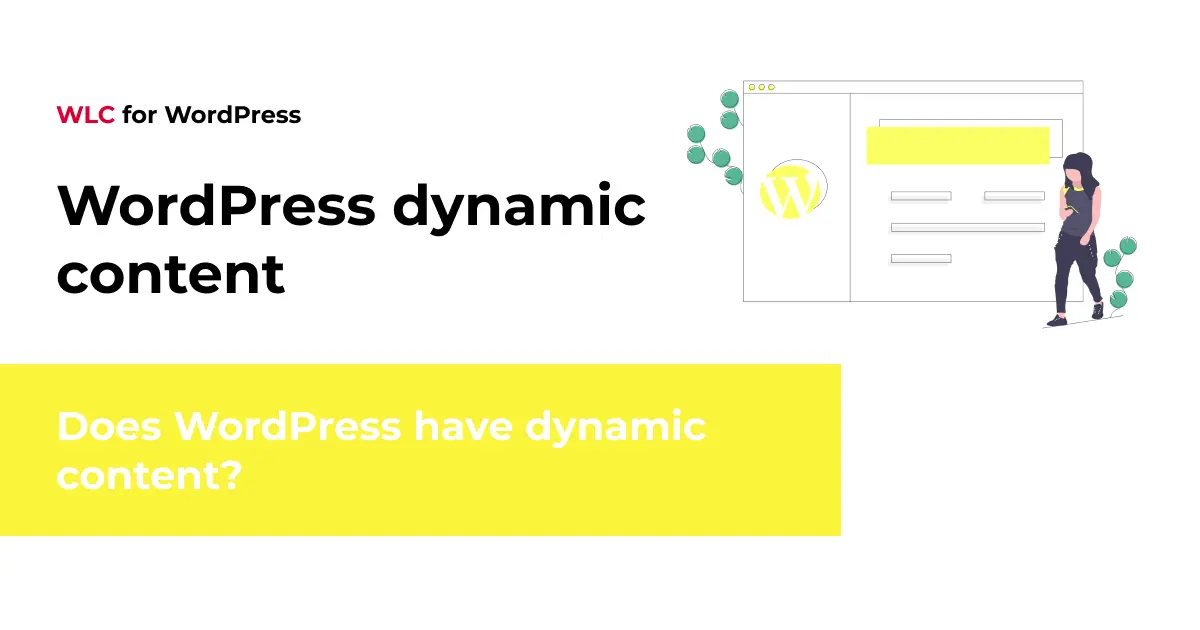Category: WordPress
Is WordPress becoming obsolete?

No, WordPress is not becoming obsolete in today’s web development landscape. This perception often stems from misunderstandings about how the platform has evolved. While newer alternatives have emerged, WordPress continues to power over 40% of all websites globally, demonstrating its ongoing relevance and adaptability.
The narrative of WordPress becoming outdated primarily comes from comparisons to specialized solutions or cutting-edge technologies that serve different purposes. In reality, WordPress has consistently reinvented itself through major updates and architectural shifts that keep it aligned with modern development standards.
WordPress’s open-source ecosystem remains one of its greatest strengths. With thousands of developers continually contributing improvements and security updates, the platform evolves faster than many proprietary alternatives. The introduction of the block editor (Gutenberg) marked a significant paradigm shift, bringing WordPress firmly into the modern component-based development approach.
For businesses seeking a balance of flexibility, reliability, and forward compatibility, WordPress custom development continues to provide an exceptional foundation. WordPress’s ability to scale from simple blogs to complex enterprise applications demonstrates its continued relevance in the development ecosystem.
At White Label Coders, we see first-hand that businesses and agencies choose WordPress custom development not only for blogs but also for complex e-commerce, iGaming, fintech and enterprise solutions.
What is the current market position of WordPress in 2025?
WordPress maintains a dominant market position in 2025, powering approximately 43% of all websites on the internet. This represents continued growth rather than decline, firmly establishing WordPress as the most widely-used content management system by a significant margin.
When examining the CMS market specifically, WordPress’s dominance becomes even more apparent, with a market share exceeding 65%. Its nearest competitors typically hold single-digit percentages, highlighting the considerable gap between WordPress and alternative platforms.
This market leadership extends across various sectors:
- Small to medium businesses consistently choose WordPress for its flexibility and cost-effectiveness
- Enterprise-level organizations leverage WordPress for its scalability and security capabilities
- E-commerce sites represent a growing segment, with WooCommerce powering millions of online stores
- Media companies and publishers rely on WordPress for its content management capabilities
The platform’s widespread adoption creates a self-reinforcing ecosystem: more users attract more developers, creating more resources, which in turn attracts more users. This network effect continues to strengthen WordPress’s position rather than diminish it.
The statistics clearly contradict any notion of WordPress becoming obsolete. Instead, they demonstrate a mature platform that continues to evolve while maintaining its leadership position in the web development space.
How is WordPress adapting to modern web development needs?
WordPress is actively adapting to modern web development needs through significant architectural and feature updates that align with contemporary development practices. These adaptations ensure WordPress remains a viable and powerful platform for today’s web projects.
The introduction of the Gutenberg block editor represents WordPress’s most transformative evolution. This shift to a component-based editing experience mirrors modern front-end development approaches used in frameworks like React. The block system provides a modular content structure that enhances both the editing experience and the flexibility of content presentation.
Full Site Editing (FSE) extends this modernization by enabling complete site customization through the same block interface. This unified approach simplifies the development process while providing more intuitive controls for users. Block themes leverage this system to offer unprecedented customization options without requiring extensive coding knowledge.
On the technical side, WordPress has embraced modern development practices through:
- REST API integration that enables headless implementations and decoupled architectures
- Improved JavaScript frameworks and build tools in core development
- Enhanced customization capabilities through hooks, filters, and template parts
- Better performance optimization tools and techniques
The platform’s ongoing commitment to backwards compatibility while introducing modern features demonstrates a balanced approach to evolution. This ensures existing sites remain functional while new projects can leverage cutting-edge capabilities.
For businesses seeking sophisticated digital solutions, WordPress custom development services can leverage these modern features to create everything from multilingual business websites to advanced e-commerce platforms and comprehensive e-learning systems.
What are the advantages of WordPress compared to newer alternatives?
WordPress offers several significant advantages over newer alternatives, which explain its continued dominance despite the emergence of competing platforms. These advantages stem from its maturity, ecosystem, and flexibility.
The WordPress ecosystem represents an unmatched advantage with over 59,000 plugins and thousands of themes. This vast repository of extensions means that most functionality requirements can be met without custom development, significantly reducing time-to-market and development costs. No newer platform comes close to offering this breadth of ready-made solutions.
Community support provides another substantial benefit. With millions of developers, extensive documentation, countless tutorials, and active forums, WordPress users have abundant resources for learning and problem-solving. This community infrastructure takes years to develop and cannot be quickly replicated by newer platforms.
Other key advantages include:
- Unmatched content management capabilities refined over two decades
- Extensive developer talent pool making it easier to find qualified professionals
- Proven security frameworks with rapid responses to vulnerabilities
- Reliable update paths and version control systems
- Extensive hosting options optimized specifically for WordPress
WordPress’s longevity has also created a robust economy of specialized services, from managed hosting to security solutions to specialized development agencies. This mature ecosystem provides levels of support that newer platforms simply cannot match.
While newer alternatives might offer specific technical advantages in niche areas, they typically lack the comprehensive support structure that makes WordPress a practical choice for most business websites and applications.
For companies that need predictable budgets, WordPress custom development often provides the lowest total cost of ownership compared to SaaS platforms, while ensuring complete data ownership.
WordPress vs. Modern Alternatives: A Platform-by-Platform Analysis
To make an informed decision about whether WordPress is outdated, it’s essential to compare it directly with popular modern alternatives. Each platform has distinct strengths and limitations that make them suitable for different project types and business needs.
WordPress vs. Webflow: Design Flexibility vs. Customization Depth
Webflow excels in visual design control and modern CSS capabilities, making it attractive for design-focused agencies and creative professionals. However, WordPress offers deeper customization possibilities through its extensive plugin ecosystem and custom development capabilities.
- Design Control: Webflow provides pixel-perfect visual control, while WordPress requires more technical knowledge for advanced design customization
- Content Management: WordPress offers superior content management features for complex sites, while Webflow’s CMS is more limited
- Scalability: WordPress handles large-scale sites and high traffic better than Webflow
- Cost: WordPress can be more cost-effective long-term, especially for content-heavy sites
WordPress vs. Squarespace: Ease of Use vs. Scalability
Squarespace prioritizes simplicity and beautiful templates, making it ideal for small businesses wanting quick setup. WordPress requires more initial learning but offers unlimited growth potential.
- Setup Time: Squarespace sites can launch in hours, while WordPress typically requires days or weeks for custom development
- Customization: WordPress offers unlimited customization options, while Squarespace is limited to template modifications
- E-commerce: WordPress with WooCommerce provides more advanced e-commerce features than Squarespace’s built-in tools
- Ownership: WordPress gives complete control over your site, while Squarespace maintains platform dependency
WordPress vs. Shopify: Multi-Purpose vs. E-commerce Focus
Shopify dominates in pure e-commerce functionality but lacks WordPress’s versatility for non-commerce content and features.
- E-commerce Features: Shopify offers superior built-in e-commerce tools, while WordPress requires WooCommerce setup
- Content Marketing: WordPress excels at blogging and content marketing, areas where Shopify is limited
- Transaction Fees: Shopify charges transaction fees; WordPress with WooCommerce doesn’t
- App Ecosystem: Both have extensive app/plugin ecosystems, but WordPress’s is broader beyond e-commerce
WordPress vs. Headless CMS Solutions: Performance vs. Complexity
Headless CMS platforms like Contentful or Strapi offer superior performance for specific use cases but require significantly more technical expertise.
- Performance: Headless solutions can deliver faster frontend experiences, while WordPress offers good performance with proper optimization
- Development Complexity: Headless requires frontend development expertise; WordPress can be managed by non-developers
- Content Management: WordPress provides a more user-friendly editing experience for content creators
- Total Cost: Headless solutions often require ongoing developer involvement, making WordPress more cost-effective for many businesses
When Each Platform Excels
Choose WordPress when: You need a flexible, scalable solution with extensive customization options, strong content management capabilities, and access to a vast ecosystem of plugins and developers.
Choose Webflow when: Visual design control is paramount, you have design expertise but limited development resources, and your site doesn’t require complex functionality.
Choose Squarespace when: You need a beautiful site quickly with minimal technical involvement, and your requirements are straightforward without complex customization needs.
Choose Shopify when: E-commerce is your primary focus, you want built-in payment processing and inventory management, and content marketing is secondary.
Choose Headless CMS when: You have dedicated development resources, need maximum performance optimization, or require content distribution across multiple channels and applications.
This analysis demonstrates that rather than being outdated, WordPress remains highly competitive by offering the best balance of flexibility, functionality, and accessibility for most web projects in 2025.
Debunking Common WordPress Myths: Facts vs. Fiction
Despite WordPress’s continued dominance, persistent myths about its capabilities and security fuel misconceptions about the platform becoming obsolete. Let’s examine these criticisms with concrete evidence and data to separate fact from fiction.
Security Concerns: The Reality Behind the Headlines
WordPress’s reputation for security vulnerabilities is largely misunderstood. The platform’s security team responds to critical vulnerabilities within hours, not days or weeks. WordPress maintains a dedicated security team that follows responsible disclosure practices and has established partnerships with security researchers worldwide.
Key security facts that counter common misconceptions:
- WordPress core has had only 15 critical vulnerabilities in the past 5 years, compared to 40+ for Drupal and 25+ for Joomla
- Automatic security updates are deployed to over 40% of all WordPress sites within 24 hours of release
- The WordPress Security Team includes experts from companies like Google, Facebook, and leading security firms
- Most “WordPress hacks” actually stem from outdated plugins or weak passwords, not core vulnerabilities
Major enterprises including Sony, The New York Times, and Microsoft continue to trust WordPress for their critical web properties, demonstrating confidence in its security framework.
Performance Issues: Modern WordPress Speed Benchmarks
Performance criticisms of WordPress often reference outdated implementations or poorly optimized sites. Modern WordPress, when properly configured, consistently achieves excellent Core Web Vitals scores and loading times.
Recent performance data reveals:
- Optimized WordPress sites achieve average loading times of 1.5-2.5 seconds, well within Google’s recommended thresholds
- WordPress sites using modern caching solutions score 90+ on Google PageSpeed Insights
- The introduction of WebP image support and lazy loading in WordPress core improved average site speeds by 15-20%
- WordPress sites consistently outperform many “faster” alternatives when comparing like-for-like functionality
Performance issues typically stem from poor hosting choices, excessive plugins, or lack of optimization rather than inherent WordPress limitations.
Complexity Claims: The Modern User Experience Reality
The perception of WordPress as complex contradicts the platform’s evolution toward user-friendly, no-code capabilities. The Gutenberg editor has transformed content creation into an intuitive, visual experience that requires minimal technical knowledge.
Evidence of WordPress’s accessibility improvements:
- The block editor reduces content creation time by an average of 40% compared to classic editors
- Full Site Editing allows complete website customization without touching code
- Over 60% of WordPress users report never needing to edit PHP or CSS files
- WordPress now powers websites for users ranging from complete beginners to enterprise developers
Modern WordPress installations can be fully managed through intuitive interfaces, making advanced functionality accessible to non-technical users.
Technology Obsolescence: Embracing Modern Development Practices
Claims that WordPress uses “outdated technology” ignore significant architectural improvements and modern development integration. WordPress has successfully evolved its codebase while maintaining backward compatibility.
Recent technological advancements include:
- React-based Gutenberg editor bringing component-based development to WordPress core
- REST API enabling headless implementations and modern JavaScript frameworks
- PHP 8+ support with performance improvements of up to 30%
- Modern build tools and automated testing integrated into core development processes
- Block-based architecture aligning with contemporary component design patterns
These improvements demonstrate WordPress’s commitment to staying current with web development trends while maintaining the stability that enterprises require.
When might WordPress not be the right choice for your project?
Despite its versatility, WordPress isn’t the optimal solution for every web project. Recognizing these limitations helps make informed platform decisions based on specific project requirements rather than general assumptions about obsolescence.
WordPress may not be ideal for highly specialized applications with unique technical requirements. Projects that demand unusual database structures, specific programming paradigms, or unconventional content models might find WordPress’s architecture limiting. Examples include complex real-time applications, specialized computational tools, or platforms with very specific technical constraints.
Other scenarios where alternative solutions might be more appropriate include:
- Projects requiring minimal interface where a microsite or static site generator would be more efficient
- Applications needing extremely high-performance processing where a framework optimized for that specific use case would be better
- Development teams with extensive expertise in another platform but limited WordPress experience
- Systems with unusual security requirements that don’t align with WordPress’s security model
Resource constraints can also influence platform selection. While WordPress is generally resource-efficient, some hosting environments might struggle with its requirements. Similarly, projects with minimal maintenance budgets might benefit from platforms with less frequent update requirements.
It’s worth noting that many perceived limitations of WordPress can be addressed through custom development approaches. For instance, performance concerns can be mitigated through optimization techniques, and security considerations can be addressed through proper configuration and maintenance practices.
Making an informed decision requires evaluating your specific business requirements against the capabilities of WordPress and potential alternatives. Consulting with experienced developers who understand various platforms can help determine the most appropriate solution for your unique project needs.
One of our roles as WordPress consultants is to help clients evaluate when custom WordPress development is the best fit — and when alternative solutions may be more effective.
How are developers extending WordPress beyond traditional limitations?
Innovative developers are extending WordPress well beyond its traditional boundaries through advanced implementation approaches that leverage WordPress’s core strengths while overcoming its conventional limitations. These approaches demonstrate WordPress’s continued relevance in complex development scenarios.
Headless WordPress implementations represent one of the most significant advancements. By using WordPress as a backend content management system while implementing the frontend with modern JavaScript frameworks like React, Vue, or Angular, developers get the best of both worlds: WordPress’s content management capabilities and the performance and interactivity of modern frontend technologies.
The WordPress REST API serves as the foundation for these headless architectures, allowing developers to access WordPress data programmatically while building completely custom interfaces. This approach is particularly valuable for projects requiring:
- High-performance user interfaces with minimal page reloads
- Custom application experiences beyond traditional website formats
- Integration with mobile applications or IoT devices
- Multi-channel content distribution from a single source
Beyond headless implementations, developers are extending WordPress through sophisticated integration approaches. By connecting WordPress with external systems like CRMs, ERPs, and marketing automation platforms, they’re creating powerful business ecosystems with WordPress at the center.
Custom plugin development has also evolved significantly, with developers leveraging modern PHP practices, advanced JavaScript frameworks, and sophisticated database techniques to create functionality that rivals specialized applications.
Companies offering WordPress custom development services can transform this versatile CMS into powerful solutions for specific business needs, from multilingual corporate sites to comprehensive e-learning platforms and sophisticated e-commerce systems.
What does the future hold for WordPress and its users?
The future of WordPress appears robust and evolutionary rather than obsolescent. Based on current development trajectories and market positioning, WordPress is likely to maintain its relevance while continuing to adapt to changing web technologies and user expectations.
The ongoing development of the block system represents WordPress’s clear path forward. As this ecosystem matures, we can expect increasingly sophisticated site-building capabilities that maintain WordPress’s accessibility while offering advanced design and functionality options. This evolution will likely continue to blur the line between traditional WordPress themes and more flexible page-building systems.
Several key trends will shape WordPress’s future:
- Further expansion of headless implementations as more businesses adopt decoupled architectures
- Increased focus on performance optimization to address Core Web Vitals and user experience demands
- Enhanced accessibility features to meet growing regulatory requirements and user needs
- Deeper integration capabilities with external systems and services
- Continued evolution of WooCommerce to address changing e-commerce requirements
For businesses currently using WordPress, these developments suggest a stable platform with a clear upgrade path rather than a system facing obsolescence. Organizations can confidently invest in WordPress with the knowledge that their websites and applications will remain supportable and extensible.
For those considering WordPress for new projects, the platform’s combination of current capabilities and future direction makes it a prudent choice for a wide range of web development needs. With professional support from experienced WordPress developers, businesses can leverage this powerful platform to create sophisticated, future-proof digital experiences.
Rather than becoming obsolete, WordPress continues to demonstrate remarkable adaptability through its evolution from a simple blogging platform to a comprehensive content management system and now to a flexible foundation for modern web experiences.
At White Label Coders, we specialise in building future-proof custom WordPress websites. Whether you need enterprise-level scalability, advanced integrations, or high-performance e-commerce, our team ensures WordPress delivers the modern, secure, and adaptable solution your business requires.






